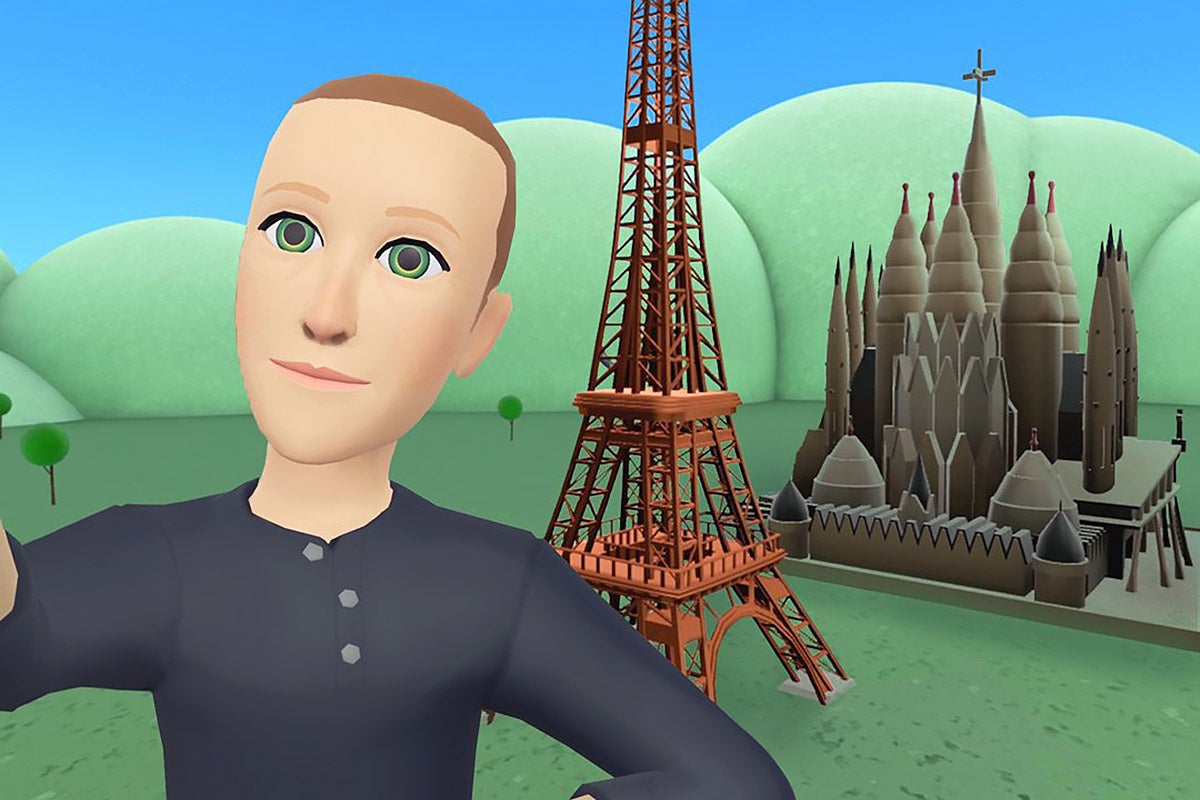Eddie-Griffin
Banned
https://www.scmp.com/comment/opinio...failed-it-never-even-took?utm_source=rss_feed
There's a good point being made here. The <insertname>verse was supposed to be a new parallel internet and hub for entertainment, social and communication.
But how can you so that if everyone is trying to control the industry with their own vision, their own ecosystems, and their own isolates apps, experiences, and walled headsets?
Downsides like low batter life, comfort, and other flaws are also an issue, but already some headsets like pancake1 and Zucker, want their upcoming/recently launched headsets to be something you wear and don't take off.
But the biggest problem imo, is no one can define what the "metaverse" is, it seems to change based on the person, agenda, and vision, and sometimes with the same person.
I think VR will do better if it abandons this "metaverse" thing and instead tried to foster an competitive and collaborative that had some standardization so more companies can compete, and developers can ut their stuff on multiple devices earning profit along with exclusives, which will bring in more people, and everyone wins.
Meta's big bet on the 'next chapter of the internet' has not paid off, while Microsoft has dismantled its Industrial Metaverse Core Team and Tencent no longer plans to make the hardware. What went wrong? Last month, The Atlantic magazine's Megan Garber argued that we were already living in the metaverse. She's wrong. More recently, The New York Times published a piece forecasting that the next housing boom will take place in the metaverse. It won't. Nothing will take place there, because it does not exist. It is a concept, a hype-filled hypothesis detached from reality.
In October of 2021, Facebook made a big announcement to the world: the multinational technology conglomerate was changing its name to Meta. The new name was supposed to reflect the company's expanding ambitions. Facebook was a company designed to conquer social media. Meta, on the other hand, had ambitions of conquering the metaverse, a wholly immersive virtual world facilitated by futuristic avatars and wearable devices.
Last October, the multinational tech colossus established the "Industrial Metaverse Core Team" to help transition the company and its customers into the virtual unknown. Just a few months on, Microsoft has reportedly pulled the plug; the core team has been dismantled.
As I write this, Tencent, one of the biggest tech companies in China and the biggest video game company in the world, is abandoning its plans to create hardware for the metaverse.
What went wrong?
Benjamin Mayo, a tech expert who was one of the very first influential thinkers to ridicule the idea of the metaverse, told me that nobody really wants to enter this brave new world, simply "because the means to access it – the headsets – are unwieldy and fraught with downsides like short battery life, cost, aesthetics and ergonomics". As for the actual place you can visit, the so-called "metaverse", it is "low fidelity and there's not much to do that couldn't be achieved more efficiently with a video call".
Moreover, he added, "you also have the closed ecosystem issue where each manufacturer is trying to make their own independent, isolated world. Nothing has critical mass to warrant its existence". Until all of this changes, Mayo believes the metaverse will remain a fundamentally flawed concept, a "place" that will continue to offer people very few (if any) compelling reasons to invest hundreds of dollars in wearable tech to visit.
By the end of the decade, we were all supposed to be living in the metaverse. In reality, by 2030, according to Mayo, the internet will "probably look very similar to what it looks like today". The smartphone, not some clunky headset, "will still be the primary device for almost everyone".
The metaverse may not be completely dead, but it's certainly far from alive. And, if we're being honest, that's probably a good thing for humanity.
There's a good point being made here. The <insertname>verse was supposed to be a new parallel internet and hub for entertainment, social and communication.
But how can you so that if everyone is trying to control the industry with their own vision, their own ecosystems, and their own isolates apps, experiences, and walled headsets?
Downsides like low batter life, comfort, and other flaws are also an issue, but already some headsets like pancake1 and Zucker, want their upcoming/recently launched headsets to be something you wear and don't take off.
But the biggest problem imo, is no one can define what the "metaverse" is, it seems to change based on the person, agenda, and vision, and sometimes with the same person.
I think VR will do better if it abandons this "metaverse" thing and instead tried to foster an competitive and collaborative that had some standardization so more companies can compete, and developers can ut their stuff on multiple devices earning profit along with exclusives, which will bring in more people, and everyone wins.



